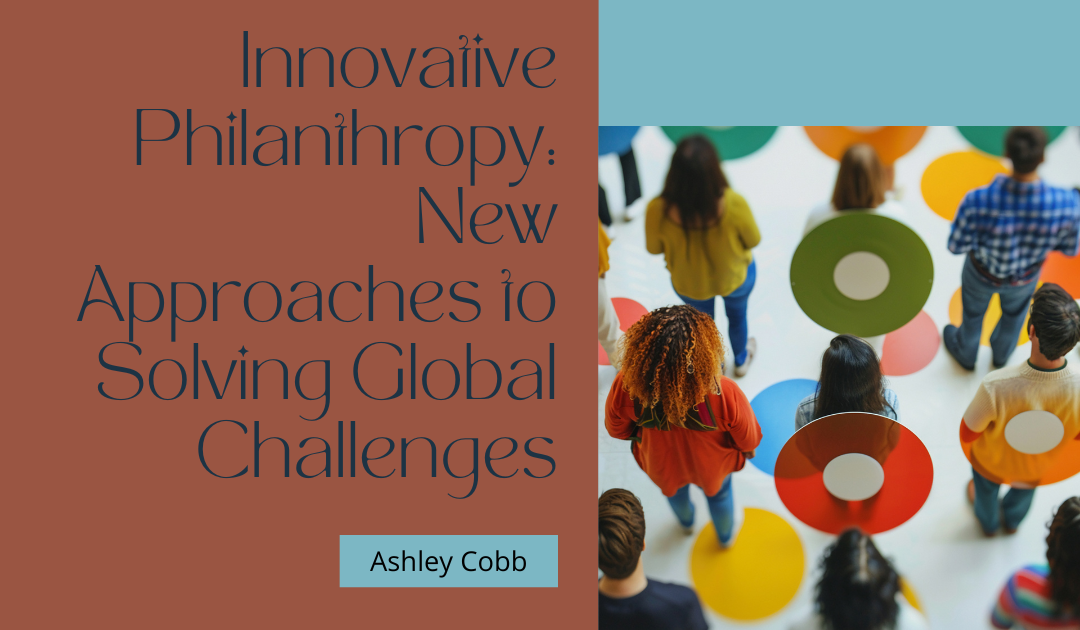Philanthropy has long played a crucial role in addressing social and global challenges, but traditional models of giving are evolving. As the world faces increasingly complex issues such as climate change, poverty, and access to healthcare, innovative approaches to philanthropy are emerging. These new strategies focus on sustainability, collaboration, and technology-driven solutions to create a lasting impact.
One of the most transformative shifts in philanthropy is impact investing. Unlike traditional charitable donations, impact investments are designed to generate both social and financial returns. Investors fund projects and businesses that align with their values, such as renewable energy, affordable housing, or sustainable agriculture. This approach allows capital to continuously flow toward meaningful causes rather than being a one-time donation. Organizations and individuals are recognizing that strategic investments can drive change while ensuring long-term financial sustainability.
Technology has also revolutionized philanthropy, making it easier to connect donors with causes and track the effectiveness of contributions. Blockchain technology is being used to increase transparency in charitable giving by providing a secure and verifiable record of how funds are spent. Crowdfunding platforms have empowered individuals to raise money for social causes, breaking down barriers that once made large-scale fundraising difficult. Artificial intelligence and data analytics are helping organizations identify the most pressing needs and allocate resources efficiently.
Collaboration between the private sector, governments, and non-profits is another key driver of innovative philanthropy. Public-private partnerships bring together resources, expertise, and influence to tackle major global issues. Corporations are integrating social responsibility into their business models, not only through donations but also by aligning their products and services with sustainable development goals. Businesses that prioritize ethical sourcing, fair labor practices, and environmental conservation contribute to systemic change beyond traditional philanthropy.
The rise of social entrepreneurship has also changed the landscape of giving. Many entrepreneurs are launching businesses that prioritize social impact alongside profit. These mission-driven enterprises create jobs, provide essential services, and address community needs while remaining financially viable. By supporting these businesses, donors and investors help create self-sustaining solutions rather than temporary aid.
Education and skills training are being reimagined through philanthropic efforts that emphasize long-term empowerment. Rather than providing short-term relief, many organizations focus on equipping individuals and communities with the tools they need to become self-sufficient. Programs that teach entrepreneurship, vocational skills, and digital literacy help people break cycles of poverty and build sustainable futures.
Philanthropy is no longer limited to wealthy individuals or large foundations. Everyday people can contribute through micro-philanthropy, where small donations collectively create a significant impact. Mobile apps and online platforms make it easy for individuals to donate spare change, sponsor education for children, or fund clean water projects with just a few clicks. This democratization of giving ensures that everyone has an opportunity to participate in global change.
Innovative philanthropy is reshaping how the world addresses its most pressing challenges. By leveraging technology, impact investing, collaboration, social entrepreneurship, and empowerment-driven initiatives, philanthropy is becoming more effective and sustainable. These modern approaches ensure that charitable efforts create lasting change, helping communities thrive rather than just survive. The future of philanthropy is not just about giving—it is about transforming lives through innovation, strategy, and long-term vision.

